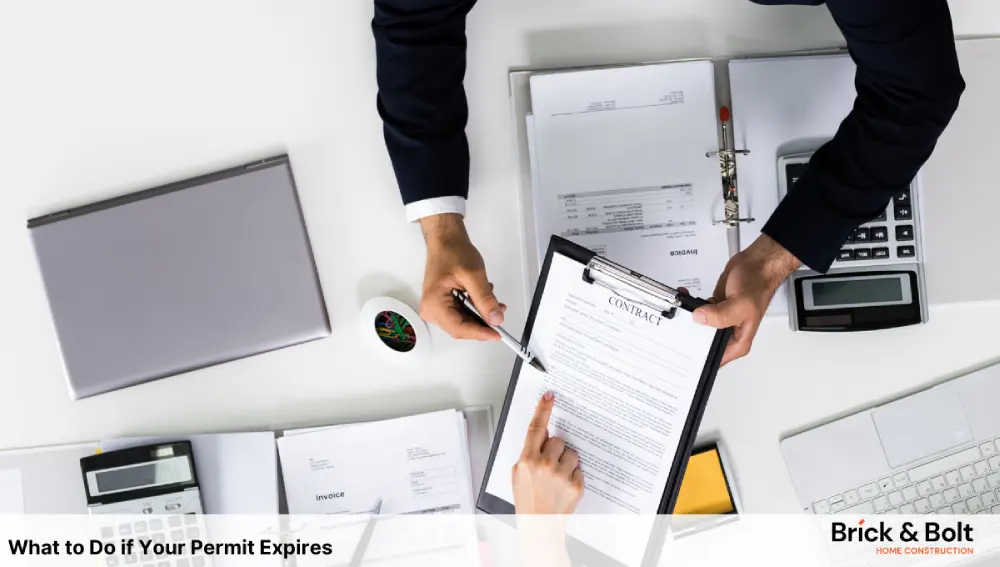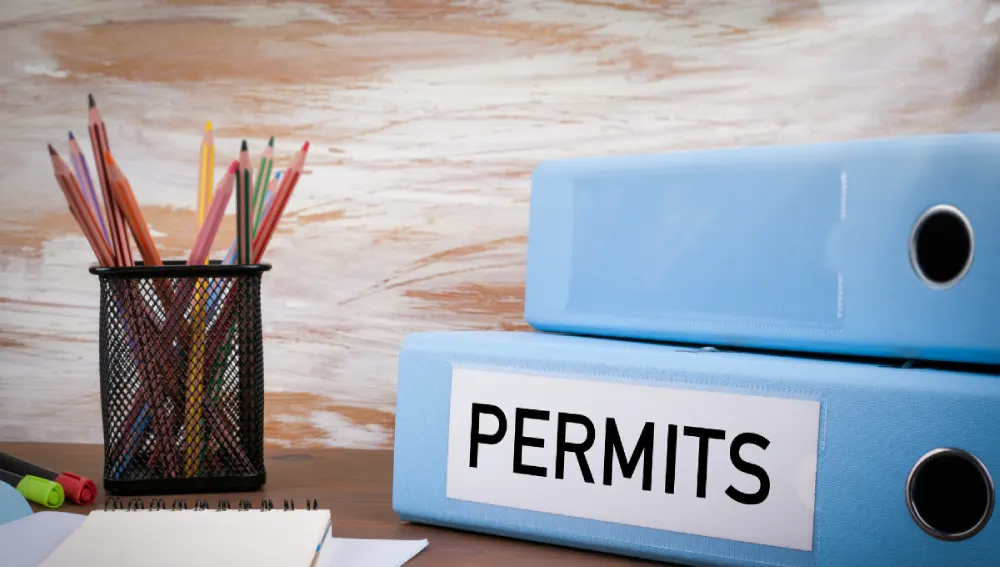Whenever one plans to build or rebuild a structure or do any other development, one must get the right permits. A building permit is important. It ensures that the project follows local standards. It reduces risk in construction and reassures every stakeholder.
But, it is crucial to know that there are risks from the refusal. If the building permit is expired or Bulit Without A Permit, it will also impact the project.
In this article, we will explore what happens if a building permit expires and provide guidance on how to prevent and address this issue.
What Happens If a Building Permit Expires?
Building permits imply that if one expires, it causes problems for the owner and other projects. Failing to abide with a permit that reached its expiry date may attract fines, penalties, and legal proceedings.
The consequences of an expired permit may be direct. But they may also affect other parts of life.
Consequences of an Expired Permit
Work Stoppage
Projects with expired permits will see some effects. The first is the suspension of construction. Construction activity has to cease until such time that a new permit is granted or the permit expiring is replaced. This can lead to numerous problems, such as the project taking a longer time than planned and the costs increasing.
Fines and Penalties
The other results of expiring permits include fines and penalties. These are levied against companies and people involved in the underwriting processes. They are often case-sensitive. They may go for as little as a few hundred rupees to as much as several thousands.
The price depends on the location of the government in question. In some occasions the property owner may also need to secures a new permit which often proves very expensive and annoying.
Renewal Process
If the permit has reached its expiry date, the holder is supposed to apply for a new license and go through the fee process again. It can take a substantial amount of time and, sometimes the deteriorating conditions may force one to start over with the project all over again.
Project Delays
These are buildings for which permits have been issued. But, construction has not started or has been stopped for some reason. Such holdups can lead to increased expenses and lost time, which cannot be advantageous for the project as a whole.
Compliance Issues
Outdated permits can also have an impact on compliance. This leads to a stop work order which can cause further hold up in the process of the project, if the set out permit compliances are not met.
What to Do if Your Permit Expires

Contact the Building Department
The first action is to communicate to the building department about a permit that has gone out of date. They can then give information on how to go about renewing the permit. You can use resources like the Parivahan Sewa, the official website of the Ministry of Road Transport and Highways. You can also use the official state government website to renew the permit, if the facility is available.
Prepare for Renewal
To renew a permit, gather the necessary information and documents first. Then, initiate the process with the permit holder. This involves ensuring that construction and changes follow relevant standards and codes. It also involves ensuring that the right inspections are done when needed. Most often the following documents are required:
- The original expired permit
- A copy of your ID proof (Aadhaar card, PAN card, etc.)
- Address proof documents
- Proof of fee payment
Consider a Professional
If you are not very confident in this process of renewal or need some help, then it is possible to turn to the professionals. They are useful to prevent people from getting lost and also to make sure that all the proper measures are involved.
How to Prevent a Permit Expiration
Track Validity
Therefore, it is important to monitor the permit status to avoid such a situation when the permit is no longer valid. This covers the need to track the permit’s expiry date. It ensures that all the required actions to renew the license are pursued before it expires.
Buffer Time
There should always be time between the expiration date and the renewal process. This way, any issues can be resolved without delay. This time enables any corrections to be made and it also makes sure that a new permit for the teaching practice is issued without any gaps in between.
Communication is Key
It is important to ensure that the validity of the permit is communicated to any involved stakeholder efficiently to avoid permit expirations. Make sure all the project stakeholders are informed of the date the permit expires and the steps to take to renew it.
Conclusion
Thus, it can be pointed out that expired building permits have certain impacts on the owners of properties and constructions. Failure to adhere to that should be done with the expired permit can attract fines, penalties, and even lawsuits. Thus, learning the impact of expired permits and how to avoid them shall help property owners protect their projects from setbacks.
FAQs
What permits are generally required for construction in India?
Land title, land clearance, zonal clearance, highway permit, forest permit, and other permits suitable to the property under consideration are generally required for permission for construction in India.
How long is a building permit valid?
Building permits are valid in India for 3 years in case of 4-storeyed residential, industrial, and commercial buildings from the date of sanction. For buildings over 15 m in height, the building permit extends for a period of 4 years.
What certificates should construction companies hold in India?
Construction companies must hold a solvency certificate, character certificate, and labor office registration certificate for registration purposes in India.

